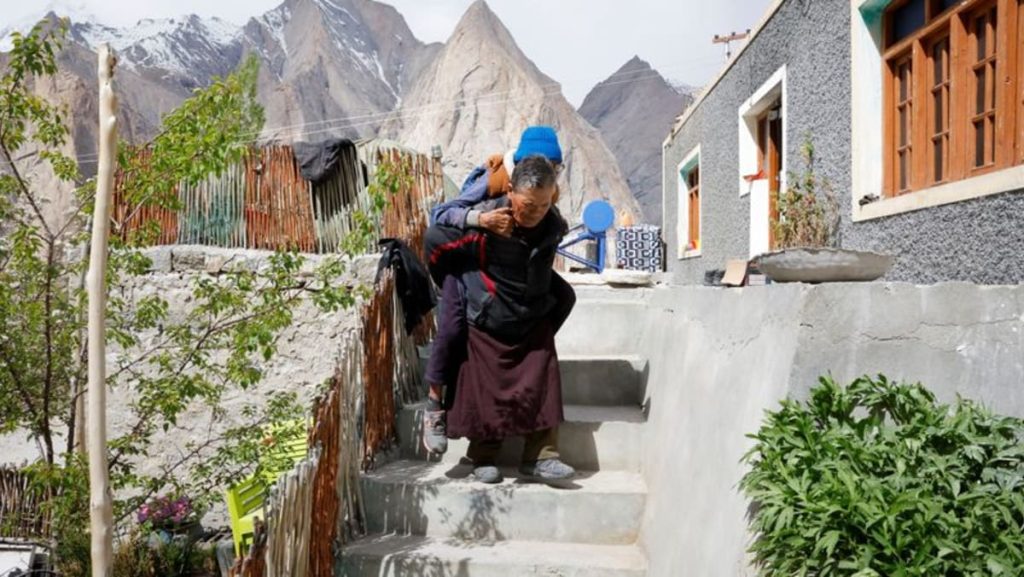On Monday, five members of a family residing in the remote village of Warshi in the Himalayas were able to vote in the Indian election after officials went to great lengths to ensure they could cast their ballots. The family, consisting of Rinchen, her parents, and grandparents, were the only voters in this polling station, highlighting the challenges of conducting elections in such isolated locations.
The officials had to travel for seven hours from Leh, the capital city of Ladakh, to reach Warshi and bring the necessary voting equipment. The journey covered 180km and involved boarding a bus to reach the village, which is situated near the Siachen Glacier, known as the world’s highest battlefield due to the ongoing conflict between Indian and Pakistani forces in the region.
Despite being accessible by road, Warshi lacks basic amenities such as electricity, healthcare, and internet connectivity. The difficulties faced by the polling officials in ensuring that the family could vote underscore the challenges of conducting elections in remote areas with limited infrastructure, where even the most basic services are not readily available.
The officials had initially brought a generator with them to provide electricity for the polling station, but it failed to work upon arrival. They then turned to the military Border Roads Organisation for help, borrowing a power connection to ensure that the voting process could take place. This collaboration between government agencies highlights the importance of working together to overcome logistical challenges in conducting elections in remote regions.
The efforts made by the polling officials to enable the family in Warshi to vote illustrate the dedication and commitment of election authorities to ensure that all eligible voters have the opportunity to participate in the democratic process. Even in the most difficult and remote locations, officials go to great lengths to uphold the principle of universal suffrage and ensure that every vote counts.
Overall, the story of the family in Warshi voting in the Indian election highlights the complexities and challenges of conducting elections in isolated areas with limited resources. By showcasing the lengths to which officials went to ensure that this family could exercise their right to vote, the story serves as a reminder of the importance of inclusivity and accessibility in democratic processes, and the commitment of election authorities to uphold these principles.


